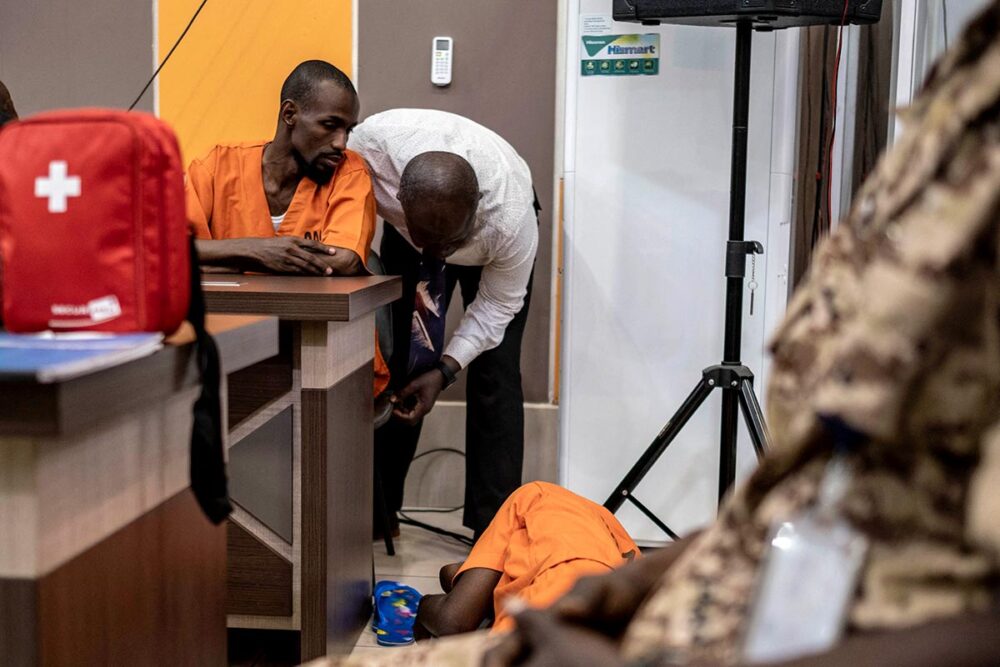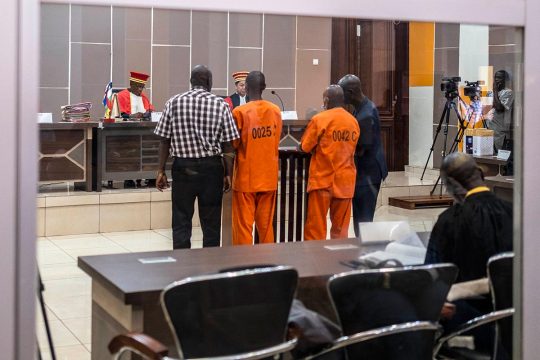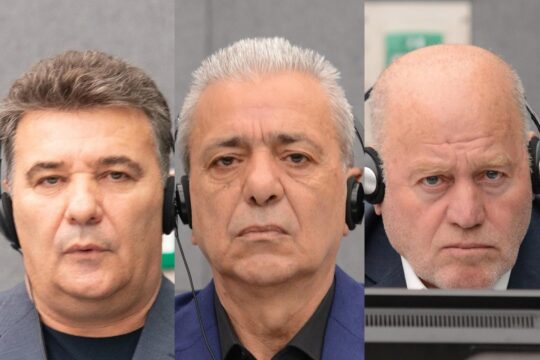On July 20, 2023, the Appeals Chamber of the Special Criminal Court (SCC) in the Central African Republic handed down its first judgment on the merits. The ruling went largely unnoticed. However, it offers a real double added value: controlling the work of the trial chamber, and guiding the judges in their future task.
The Appeals Chamber was called to rule on the SCC trial court judgment handed down on October 31, 2022. Issa Sallet Adoum, Yaouba Ousman and Mahamat Tahir had been found guilty of crimes against humanity for murder and other inhumane acts, and war crimes for murder and outrages upon personal dignity, in particular humiliating and degrading treatment. In addition, Issa Sallet Adoum was found guilty as superior of rape committed by his subordinates, constituting crimes against humanity and war crimes.
The three defendants are former members of the armed group known as "3R" (Return, Reclamation, Rehabilitation), led by Sidiki Abass, who died in 2021. This armed group was officially founded to protect the Peuhl minority from the exactions of the "anti-balaka" self-defence militias. The acts attributed to them were perpetrated in the villages of Lemouna and Koundjili, in northwest CAR, in May 2019. At least 32 people died in the attack. At the end of the trial, Issa Sallet Adoum was sentenced to life imprisonment and his two co-defendants to 20 years' imprisonment. All three appealed.
Appeals Chamber corrects errors
In its ruling of July 20, the Appeals Chamber deemed that the trial court judgment contained a number of errors and shortcomings, both in form and substance. It acquitted Issa Sallet Adoum of other inhumane acts as crimes against humanity and the war crime of outrages upon personal dignity, in relation to the events at Koundjili. In its view, the trial chamber failed to show that such acts had been committed prior to the murders of civilians attributed to the accused. But instead of sending the case back to the Assize Division for retrial, as it could have done, the Appeal Chamber decided to rule directly, correcting the errors itself. It sentenced Issa Sallet Adoum to 30 years' imprisonment for the other crimes against humanity and war crimes. It also confirmed that Yaouba Ousman and Mahamat Tahir were guilty as charged, and sentenced them to 20 years' imprisonment.
The Appeals Court also considered that the October 31, 2022 judgment fails to meet the requirements of national and international law with regard to the reasoning of its factual findings on which the guilty verdict and sentences are based. These shortcomings concern the analysis of a non-international armed conflict in which the 3R armed group took part, the characterization of the existence of a systematic and widespread attack, the qualification of the factual findings, the description of the different types of criminal liability applicable, and the individualization of the sentences. On this point, the Appeals Chamber considered that the most appropriate response in the interests of justice was not to refer the case back to the Trial Chamber. Instead, it should itself determine the key points in question.
Setting a model for judgments
This is the first definitive decision handed down by the SCC, a temporary hybrid court created in June 2015 to investigate, prosecute and judge serious violations of human rights and International Humanitarian Law committed on the territory of the Central African Republic (CAR) since January 1, 2003. This in itself represents a step forward in the fight against impunity for the perpetrators of atrocities in the CAR. Really operational only since 2018, the SCC was so slow to issue its first decisions that there were doubts it could meet the expectations of the local population and the international community on the repression of atrocities by warlords. This belated first step is undoubtedly a step in the right direction.
The July 20, 2023 judgment shows all the rigour required to meet the standards of international justice. Solidly reasoned, it is based on national and international law. It refers to the decisions of the International Criminal Court, the Extraordinary African Chambers, the Extraordinary Chambers in the Courts of Cambodia, the Specialized Chambers for Kosovo and the international tribunals for the former Yugoslavia, Rwanda and Sierra Leone. The predominantly international composition of the Appeals Chamber - which includes one German and one French judge - has contributed to bringing logic, rigour and intellectual richness to the ruling.
But the judgment does more than simply state the reasons for the decision, and reiterates the need for the trial chamber to provide sufficiently reasoned decisions (a legal requirement, as well as a historical one, it points out). In an educational way, it proposes a standard judgment plan in seven parts (reminder of the procedure, information about the accused (personal details, level of education, marital status, occupation), relevant factual conclusions established, analysis of the evidence, legal analysis, sentencing (the various factors that led the trial court to choose the sentence, including mitigating and aggravating circumstances).
This model plan is a practical tool that will be very useful for trial courts in future. The outline proposed will enable them, over and above the variety of facts and situations submitted to them, to follow a coherent approach, harmonize their reasoning and limit the risk of their judgments being overturned. This is an original and particularly welcome approach for an internationalized jurisdiction which must place efficiency and speed at the heart of its action.

Ghislain Poissonnier is a French magistrate. He has been a judge and vice-prosecutor in Béthune, Lille and Paris. He has worked as a jurist in Kosovo, Palestine, the Democratic Republic of Congo, Thailand, Afghanistan, Guinea and Côte d'Ivoire. He has been following issues of international justice and international humanitarian law for some twenty years, and is the author of numerous contributions on the subject, published in various legal journals.







